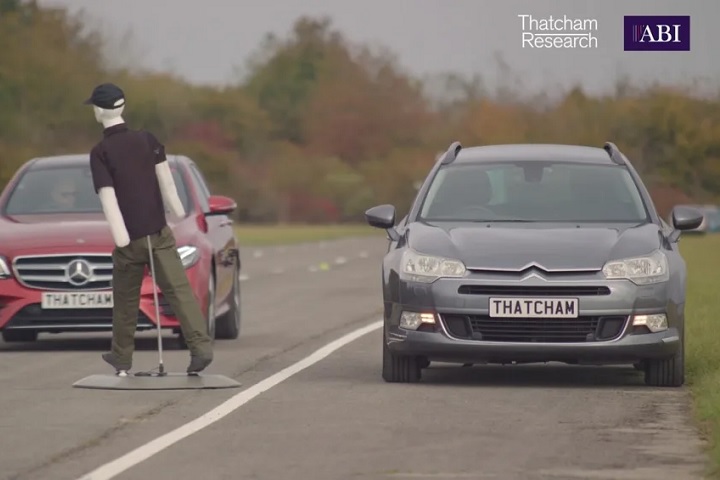
Image: Thatcham Research
Question marks have been raised over the Government’s claims motorists could see self-driving vehicles on British roads for the first time later this year.
On 28 April, the DfT set out how vehicles fitted with Automated Lane Keeping System (ALKS) technology could legally be defined as self-driving.
This is as long as they receive GB type approval and there is no evidence to challenge the vehicle’s ability to self-drive.
Transport minister Rachel Maclean has described the announcement as “a major step for the safe use of self-driving vehicles in the UK”.
However, Thatcham Research and the Association of British Insurers (ABI) are urging caution – warning that ALKS is not autonomous, but rather an assisted driving system as it relies on the driver to take back control.
Matthew Avery, director of research at Thatcham Research, said: “There is still a lot of work needed by both legislators and the automotive industry before any vehicle can be classed as automated and allowed safely on to the UK roads.”
ALKS – automated or assisted?
ALKS is a system that is capable of taking control of a vehicle travelling at low speed on a motorway.
When activated, ALKS keeps a vehicle within its lane, controlling movements for extended periods of time without the driver needing to do anything. The driver must be ready and able to resume driving control when prompted by the vehicle.
Under conditions set out by the Government, its use will be limited to speeds of up to 37mph on motorways.
The Government hopes the technology could improve road safety by reducing human error, which contributes to over 85% of collisions.
However, Thatcham Research and the ABI believe there are four non-negotiable criteria that need to be met before ALKS can be classified as automated:
- The vehicle must have the capability, and be allowed through legislation, to safely change lanes to avoid an incident
- The vehicle must have the capability to find a “safe harbour” at the side of the road and not stop in a “live” lane
- The systems on the vehicle must be able to recognise UK road signs and this needs to be assured by an independent organisation
- Data must be made available remotely through a neutral server for any incident to verify who was “in charge” at the time of the incident – the driver or the vehicle
Matthew Avery added: “ALKS as currently proposed by the Government are not automated. They are assisted driving systems as they rely on the driver to take back control.
“Aside from the lack of technical capabilities, by calling ALKS automated our concern also is that the UK Government is contributing to the confusion and frequent misuse of assisted driving systems that have unfortunately already led to many tragic deaths.
“A widespread and effective ongoing communications campaign led by the automotive industry and supported by insurers and safety organisations is essential if we are going to address current and future misconceptions and misuse.”
Comment on this story